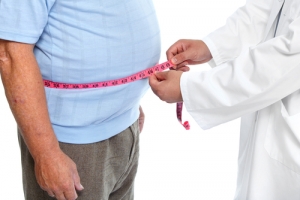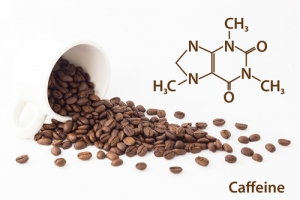Sleep And Hgh Go Hand In Hand
Human Growth Hormone Production is Intrinsically Linked to Sleep Quality
Even in the 21st century, sleep largely remains a mystery to modern medical science. Every year, we learn more about the mechanisms of sleep and how it rejuvenates the body and mind to take on another day. To live a healthy and active life, you have to make an effort to schedule regular, restful sleep.

One of the reasons why sleep is so important is because of Hormone Balance.
Many vital hormones that are produced by the human body, including Human Growth Hormone, are primarily secreted while we are at rest. This article aims to explain in further detail how Healthy HGH Balance and Good Sleep are connected.
What Makes Sleep So Important to HGH Production?
Medical research hypothesizes that around 3/4ths of the HGH that is produced by the pituitary gland is released during sleep.
HGH, like many hormones, is discharged in pulses. The majority of Growth Hormone pulses from the pituitary while we are in the deepest stages of sleep, also known as 3rd/4th Stage REM Sleep, delta, or slow wave sleep. We first reach this stage around an hour after dozing off and fade in and out for the rest of our time asleep.
We must have high-quality sleep during this phase of the night because HGH Production correlates directly with the amount of delta sleep we get each night. Healthy HGH Levels are strongly associated with markers of health and vitality.
On the other hand, Growth Hormone Deficiency is linked to low libido, reduced mental focus, weight gain, loss of exercise capacity, decreased muscle mass, thinning hair, deep wrinkles, and an increased risk of dangerous health issues such as heart disease and diabetes.
Americans No Longer Get Enough Sleep
In the fast-paced, overstimulated society that we live in, sleep deprivation is becoming an increasingly dangerous risk to men and women nationwide. People aren't getting enough sleep, and even when they do, they often have trouble reaching sufficiently deep sleep to achieve the maximum benefits of such rest.
Over the last generation, there has been a notable decline in the average amount of rest per night that Americans get on average. It's estimated that almost 70 percent of men and women in the United States get less than eight hours of sleep per night.
This lack of sleep is also paired with research that shows that quality of sleep is affecting Americans' ability to do their job, with almost 1/3rd of employees physically exhausted at work to the point of nearly falling asleep or actually falling asleep.
Americans are notable for their work ethic and pridefully putting in overtime, working multiple jobs, or working and going to school full time, but there are consequences to a lifestyle that pushes the body to its limits. HGH Deficiency is one of the significant issues related to the modern lifestyle.
How Can I Maximize HGH Production Through Sleep?
For many, it's more difficult than it sounds, but the best way to boost HGH Production is to get a full night of good sleep each night. Depending on your age and your activity level, 7-9 hours of sleep is enough for most people.
Many people try to cheat to get a full night's rest. Some people take naps every day; others try to recover from an extended sleep debt by spending their day off in bed. Though there are benefits to recuperating from sleep debt via these methods, they simply don't compare to getting regular deep sleep on a nightly basis.
In the case of HGH Production, spending too much time in bed can even have a negative impact on HGH Production because Human Growth Hormone Secretion depends on a combination of healthy activity and restful sleep.
Maintaining a set sleeping schedule maximizes HGH Secretion because of the way that our brains function while we sleep. The brain ebbs and flows through the four stages of sleep, and it takes 3-5 hours of quality rest for our brains to reach delta sleep long enough to produce all of the Growth Hormone that our bodies require. If you keep an irregular sleep pattern, your body may not spend a sufficient amount of rest in deep sleep.
What Health Issues Are Associated With Poor Sleep?
Human Growth Hormone Production begins to wane as we grow older. This is mainly because of natural changes which suppress the body's production of an important HGH Precursor known as GH-RH. Though the root of this decline is genetic, there is also an element related to age-related changes in sleeping habits.
The older that we get, the less productive the sleep cycle becomes. Sleep becomes more restless, and the brain spends a shorter period in slow wave, delta sleep. Because of that, HGH Levels fall. Sadly, though natural HGH Production decreases in correlation with age, our need for the potent hormone does not, which drastically increases the risk of HGH Deficiency.

Along with the issues directly associated with declining Growth Hormone Production, poor sleep also has a powerful effect on both health and mortality risk. The risk of developing conditions such as Obesity, Type-2 Diabetes, and Heart Disease increases dramatically.
Patients with sleeping issues are also more likely to suffer from immunodeficiency, mood disorders, and substance abuse issues. While it's true that we need less sleep the older that we get, research has shown that getting under five hours per night directly contributes to a 15% increase in overall mortality risk.
What Steps Can Be Taken to Improve Sleep Quality?
In recent years, research into sleep science has developed tremendously. There are some medications that show promise in inducing delta sleep in patients with sleep issues, including olanzapine, trazodone, eplivanserin, gabapentin, gabadoxal, and tiagabine. However, these studies are still in their preliminary stages, and more research needs to be done to fully illuminate the benefits and drawbacks of these treatments.
On the other hand, these treatments do appear to improve sleep quality while protecting against the physiological and psychological issues associated with impaired sleep. Most of these drugs are not available without a prescription. Talk to a doctor or pharmacist if you're interested in utilizing prescription or over-the-counter methods to improve sleep quality.
Sleep apnea is also one of the top health issues associated with impaired sleep quality. Sleep apnea is a condition in which your body doesn't receive sufficient airflow to help you stay asleep, leading to brief periods where breathing becomes shallow or even stops. If you feel that sleep apnea may be holding you back, reach out to a sleep specialist for help.
Natural Methods to Improve Sleep Quality

While there are medical and pharmaceutical methods to promote sleep, there are also many natural things you can do on your own to help you sleep sounder and deeper.
For example, think about buying a sleep mask or blacking out your bedroom to block out excess light. Also, light exercise such as tai chi or yoga has been shown to be beneficial.
While these activities can help you sleep, you should avoid strenuous exercise or anything that gets your body worked up before bed. Along the same lines, a big part of sleeping better is cutting off certain activities when it comes time for bed. Avoid caffeine, cigarettes, and alcohol in the hours before bed.
Sleep Better/Live Better!
Remember that your hours at rest facilitate your overall vitality. To feel and look your best, you should take all the necessary steps to ensure that you sleep as well as you live!
By sleeping well, eating well, and exercising, you should be able to sustain your HGH Levels for as long as possible! When your efforts no longer produce sufficient results, consider Hormone Replacement Therapy! Our Board Certified Hormone Clinic is here to serve you!
- What Is Andropause And How Can I Prepare For It? [Last Updated On: November 11th, 2024] [Originally Added On: February 20th, 2021]
- Theories On Aging [Last Updated On: November 10th, 2024] [Originally Added On: February 21st, 2021]
- L-carnitine Has The Ability To Preserve Mental Sharpness In The Elderly [Last Updated On: November 8th, 2024] [Originally Added On: February 23rd, 2021]
- Knowing Two Languages Can Postpone Dementia [Last Updated On: November 7th, 2024] [Originally Added On: February 24th, 2021]
- What Are The Functions Of Human Growth Hormone? [Last Updated On: November 5th, 2024] [Originally Added On: February 25th, 2021]
- Hgh Sleep: Keep Young And Healthy With Deep Sleep [Last Updated On: November 4th, 2024] [Originally Added On: February 26th, 2021]
- Why Does Human Growth Hormone Production Drop As We Age? [Last Updated On: November 3rd, 2024] [Originally Added On: February 27th, 2021]
- Growing Life Spans And Life Expectancy [Last Updated On: November 2nd, 2024] [Originally Added On: February 28th, 2021]
- Flax Seed Oil: Longevity And Anti-aging Medicine [Last Updated On: November 1st, 2024] [Originally Added On: March 1st, 2021]
- Exercise To Increase Your Hgh Production! [Last Updated On: February 19th, 2025] [Originally Added On: March 2nd, 2021]
- Eighteen Suggestions For A Longer And Happier Life [Last Updated On: October 31st, 2024] [Originally Added On: March 3rd, 2021]
- Chemical Pollution Is Destroying Masculinity [Last Updated On: February 19th, 2025] [Originally Added On: March 4th, 2021]
- Bio-identical Hgh Hormone Replacement Therapy [Last Updated On: October 30th, 2024] [Originally Added On: March 5th, 2021]
- The Longevity Film: A review [Last Updated On: July 8th, 2024] [Originally Added On: October 25th, 2022]
- Blue Zone Cultures and Their Connection to Longevity [Last Updated On: February 20th, 2025] [Originally Added On: October 27th, 2022]
- The Prevalence and Impact of Endocrine Disrupting Chemicals [Last Updated On: February 11th, 2025] [Originally Added On: February 11th, 2025]
- Understanding Exercise's Role in Slowing Down Aging [Last Updated On: February 10th, 2025] [Originally Added On: February 12th, 2025]
- Understanding the Concept of Blue Zones [Last Updated On: February 16th, 2025] [Originally Added On: February 16th, 2025]
Word Count: 1305







